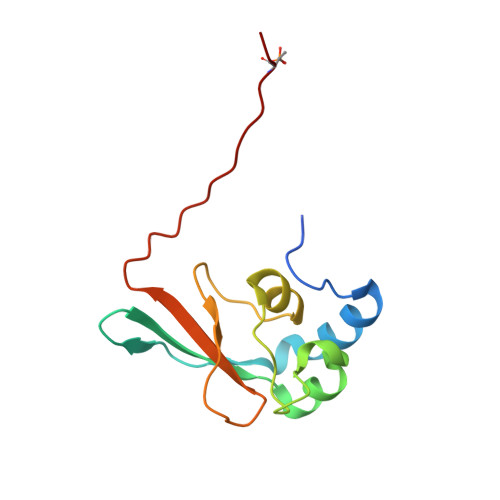Cks confers specificity to phosphorylation-dependent CDK signaling pathways.
McGrath, D.A., Balog, E.R., Koivomagi, M., Lucena, R., Mai, M.V., Hirschi, A., Kellogg, D.R., Loog, M., Rubin, S.M.(2013) Nat Struct Mol Biol 20: 1407-1414
- PubMed: 24186063
- DOI: https://doi.org/10.1038/nsmb.2707
- Primary Citation of Related Structures:
4LPA - PubMed Abstract:
Cks is an evolutionarily conserved protein that regulates cyclin-dependent kinase (CDK) activity. Clarifying the underlying mechanisms and cellular contexts of Cks function is critical because Cks is essential for proper cell growth, and its overexpression has been linked to cancer. We observe that budding-yeast Cks associates with select phosphorylated sequences in cell cycle-regulatory proteins. We characterize the molecular interactions responsible for this specificity and demonstrate that Cks enhances CDK activity in response to specific priming phosphosites. Identification of the binding consensus sequence allows us to identify putative Cks-directed CDK substrates and binding partners. We characterize new Cks-binding sites in the mitotic regulator Wee1 and discover a new role for Cks in regulating CDK activity at mitotic entry. Together, our results portray Cks as a multifunctional phosphoadaptor that serves as a specificity factor for CDK activity.
- 1] Department of Chemistry and Biochemistry, University of California, Santa Cruz, Santa Cruz, California, USA. [2].
Organizational Affiliation:

















